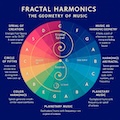On October 25, 1885, Brahms conducted the premiere of his fourth and final symphony. It's a piece that I deeply admire, and its backstory is just as compelling as the music itself. While the audience in Meiningen was appreciative—even demanding an encore of the third movement—the critical world was immediately split into two warring camps.
It's hard to imagine now, but figures like Hugo Wolf, a staunch Wagnerian, were scathing. Wolf famously dismissed the symphony as "contentless and void." Even Mahler seems to have had his reservations. To them, Brahms was looking backward, clinging to old forms while Wagner and Liszt were forging the future of music.
But then there's the other side. The influential critic Eduard Hanslick championed its originality. Fascinatingly, a young Richard Strauss, supposedly playing the triangle at the premiere, was completely won over. In a letter to his father, Strauss raved about the piece's "immense ideas and genius structure," a surprising reaction from someone we associate with the more "progressive" side of music.
So, what was all the fuss about?
I believe it boils down to the finale, the monumental passacaglia. Drawing on a theme from a Bach cantata, Brahms based his conclusion on a Baroque form. To his critics, this was the ultimate proof of his "academic" nature. They saw it as a retreat and a failure of imagination.
However, I view it as an act of incredible artistic courage. Brahms wasn't merely dusting off an old relic; he was demonstrating that these ancient structures could support the weight of modern Romantic expression. He demonstrated that tradition is not a dead end but a deep well of inspiration.
This is what makes the Fourth so powerful for me. It's a testament to the idea that looking back can be a radical act. It's a work that sparked the eternal debate in art: tradition versus innovation.
Here is a legendary performance that captures all that fire and intellectual depth.
Brahms's Symphony No. 4, conducted by Carlos Kleiber with the Vienna Philharmonic. https://www.youtube.com/watch?v=wxB5vkZy7nM
What are your thoughts on the Fourth? Do you hear it as a conversation with the past or as something else entirely?
[link] [comments]











 English (US) ·
English (US) ·